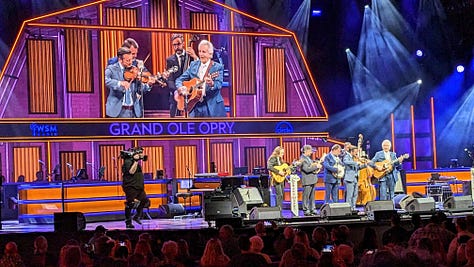As a neurodivergent person with sensory processing differences, I find certain types of sounds and noises distracting, disturbing, overwhelming, and even painful in my body, not just my ears. However, I do experience times when loud music (especially music that I like) can soothe and calm me down and also provide a joyful and fun experience. In this article, I want to explore the paradox of loud music and how I believe it helps to regulate my nervous system as a neurodivergent person.
Sensory Processing Differences
According to Dr. Ludmila Praslova in an article entitled, “Sensory Safety: A Must Of Neurodiversity Inclusion In The Workplace,” Parslova writes:
“Sensory intensity associated with neurodivergence can impact all senses – taste, touch, smell – but sound sensitivities are particularly common. These sensitivities are sometimes described as Decreased Sound Tolerance Disorders (DSTD). The most frequently researched forms of DSTD are hyperacusis and misophonia.”1
Hyperacusis is the reduced tolerance to loud sounds and can have a negative impact on a person’s psychological, social, and academic functioning. In a 2021 study, researchers noted that the prevalence of this phenomenon is very common and ranges from 37% to 69% throughout an Autistic person’s life span.2 Multiple studies have been conducted with Autistics on this phenomenon since 1995 showing consistently higher rates of sound sensitivity compared to neurotypicals. On the other hand, a limited number of studies have been conducted with ADHD subjects. Yet, from initial studies, the findings are similar, many ADHDers also tend to have a reduced tolerance to loud sounds.3 In addition, a person experiencing misophonia has both hypersensitivity and strong emotional responses to specific sounds whether loud or not.4
Generally, to put it bluntly, loud sounds stress me out. I can’t tell you how often I tend to use earplugs or my index fingers to cut noise or filter out loud sounds. For example, taking the commuter train from my home in the suburbs to downtown Chicago can be a very noisy and stressful encounter–especially, at Union Station where the diesel train engines are constantly running as they wait to depart despite being semi-underground with the mind-numbing loud noise echoing and reverberating throughout the place. In this scenario, not only do I have to contend with loud sounds, but also with the strong smell of exhaust fumes filling the train platform. When you combine these sensory inputs with crowds of passengers rushing to exit the narrow walkways, during the morning rush hour commute, the entire experience can be quite overwhelming and stressful for most people, especially a neurodivergent with sensory differences and we haven’t yet reached the city’s street level.
Once out of the train station, there are lots of other loud sounds including car horns, ambulances, fire trucks, police sirens, construction crews, jackhammers, people shouting, and so much more. On a typical work day, by the time I would get to the office with all the sensory overload from the loud sounds, various strong smells, and constantly changing visual stimuli, my nervous system would be over-stimulated and overwhelmed. When I’d get to my office, I would commonly feel a heightened sense of anxiety. This definitely is not the best way to start a successful and productive day. There’s a reason why I prefer to work remotely instead of going into the office. Thank God that I can mostly work from home since 2020. For me, working from home is an example of a silver lining for the positive work-life balance since the start of the pandemic.
Yet, in contrast to my typical experience commuting downtown, as with many things in life, there are paradoxical contradictions. To begin, I love music–I know many people do. I especially love loud music that drowns out and overtakes all my other senses. This is why I truly enjoy going to live concerts. Don’t get me wrong–I don’t like crowds. But, this is why I like reserved seating and getting to the venue early enough to get situated so I don’t have to contend with the crowds to get to my seat. I also find that the dim auditorium or arena lighting reduces my visual distractions and allows me to focus on the stage where all the action and sound are coming from.






Even though it may sound unique to me, I’m not alone in this experience. While doing research for this article, I came across many different neurodivergent posts where various people said something similar. In each case, they reported to generally hate loud sounds, but love loud music. Now, this is not the case for everyone. I think it’s important to remember that all neurodivergent expressions are on a spectrum. This means that different people with the same label such as autistic or ADHD may have slightly different experiences with any and all aspects of life. That is, no two people are the same regardless of whether they are neurodivergent or neurotypical. But, I do find it interesting that at least for some of us neurodivergents, loud music is not only tolerable but helps us to calm down.
There are several studies that can shed some light on this for us. First, some research studies including a 2013 study that demonstrated that music decreases the stress response,5 and a 2017 study which demonstrated that music positively enhances our emotional state6discuss the beneficial and positive effects of music on our physical and emotional health. Additionally, according to Meghan Davis, a music therapist, who wrote an article entitled, “Why We Love Loud Music,” states:
“Our love of loud music is not only psychological but deeply physical. This is why music is perhaps the most powerful art form. It connects to us physiologically. When we hear loud music at home, in the car, or at a concert, it makes us move. We bob our heads, we dance. This is part of the reason music can be used so effectively in therapeutic contexts. This is also the reason we play loud music when we exercise, when we’re feeling excited, or when we’re feeling sad. So turn up the volume, and remember, music has power.7”
Meghan’s statement feels so true to me. Loud music helps me to drown out all my other sense experiences, it directs me to focus on the music instead of my thoughts, and it propels me to move, dance, and sing along. In a nutshell, I find that loud music is a form of neurodivergent stimming (a.k.a, self-stimulating behavior that helps to regulate the nervous system). I believe this is one of the main reasons it helps calm my nervous system down. The added benefit is that I can also relax and enjoy moving my body without feeling that others are judging me. I still suffer from masking and camouflaging from many decades of trying to fit into a neurotypical environment as a neurodivergent person. But, I digress and will address the topic of masking in a future article. For now, let’s get back to the topic at hand.
Loud music also helps me to positively channel my emotional states and allows me to better sense and experience my body in space. That is, I believe, loud music has a positive proprioceptive effect on the body. Proprioception is the ability of our brain to sense where our body is in space. Some people, including neurodivergents, with sensory processing differences may have proprioceptive challenges resulting in needing either more or less physical stimuli to help the brain orient to where our body is in space. I’m definitely a person who needs more sensory input to experience my body. This is why I love bodywork and massage, yoga, vigorous walking, strength training, and other physical activities. In each of these cases, I feel more internally organized and calmer when I move my body or give input to my joints. Listening to loud music gives me the input and impulse to move and connect deeper to my body as well. In the end, I find loud music to be a truly visceral experience that helps me get back into my body, grounds me, and relaxes my nervous system.
What about you? Do you experience a paradox when it comes to loud sounds and music? Or, do you experience this phenomenon with any other senses such as sight, touch, smell, or taste?
Thanks for engaging with me on this topic. Let me know what you think. I look forward to hearing your comments and feedback. And, if you haven’t yet subscribed to my newsletter, consider doing it so you never miss any new posts while also helping support my work. Finally, feel free to share this article. Until next time, remember to be kind to yourself and others. Cheers!
Endnotes
1. https://ca.specialisterne.com/sensory-safety-a-must-of-neurodiversity-inclusion-in-the-workplace/
2. https://www.ncbi.nlm.nih.gov/pmc/articles/PMC8544234/
3. https://www.ncbi.nlm.nih.gov/pmc/articles/PMC7246428/
4. https://www.ncbi.nlm.nih.gov/pmc/articles/PMC8995706/
5. https://www.ncbi.nlm.nih.gov/pmc/articles/PMC3734071/
6. https://www.ncbi.nlm.nih.gov/pmc/articles/PMC5580611/
7. https://www.musicabilitylessons.com/blog//why-we-love-loud-music-1




